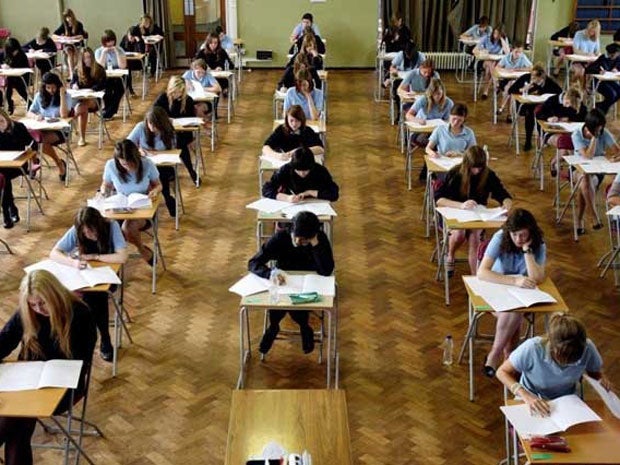Defeat for schools and pupils who launched GCSE results challenge

Thousands of teenagers today lost a fight to have their GCSE English results upgraded as the High court rejected a claim that exam bosses had acted unlawfully in changing the C grade boundaries between January and June sittings.
Lord Justice Elias ruled that - whilst some students had been treated unfairly - the fault lay with the structure of the exam rather than any unlawful action by exams regulator Ofqual or the exam boards.
The decision was greeted with “bitter disappointment” by the alliance of headteachers, schools, local authorities, pupils and teachers’ organisations who had jointly brought the unprecedented legal challenge to last year’s results.
The action stemmed from the decision of exam boards - under pressure from Ofqual - to raise the grade boundaries for those sitting the exam in June after concern that January candidates had been treated too generously.
“Once that became clear, Ofqual was engaged in an exercise of damage limitation,” said Lord Elias in his judgement. “Whichever way it chose to resolve the problem, there was going to be an element of unfairness.
“If it imposed the same standard in June as it had in January, this would be unjust to subsequent cohorts of students taking the units in subsequent years.”
He added that “the adverse consequences were relatively contained by acting at that point since far fewer students took the relevant units in January than in June”.
He concluded: “I am satisfied that it was indeed the structure of the qualification itself which is the source of such unfairness as has been demonstrated in this case - not any unlawful action by either Ofqual or the AOs (exam boards).”
“We are naturally very disappointed by the court’s decision,” said Malcolm Trobe, deputy general secretary of the Association of School and College Leaders - one of the alliance bringing the case.
“We still believe that thousands of young people had their exams unfairly downgraded last June in order to compensate for mistakes earlier in the year.”
The decision to alter the grade boundaries came as a result of Ofqual’s policy of “comparative outcomes” - which was interpreted as meaning exam results should broadly remain the same as in previous years in order to avoid grade inflation.
“Something went badly wrong with last summer’s English GCSE results and many C grade students were awarded D grades that they did not deserve,” said Nick Weller, vice-chairman of the Independent Academies Association. “We are hugely disappointed by today’s ruling which fails to correct this.
“Above all, the Department for Education must stop facing both ways on standards. On the one hand, they are committed to a relentless and admirable drive for school improvement; on the other hand, they are paranoid that any rise in overall pass rates will be derided as ‘grade inflation’.”
A spokeswoman for the DfE said: “The Secretary of State warned when he came to office that the GCSE system had serious weaknesses and needed fundamental reform.
“The Department was already fixing some of these issues - including scrapping the modular approach, like the January assessments that led to last year’s grading problems.
“The judgement demonstrates that overall Ofqual got it right last year. Attention can now focus on reforming GCSEs ready for first teaching in 2015.”
Subscribe to Independent Premium to bookmark this article
Want to bookmark your favourite articles and stories to read or reference later? Start your Independent Premium subscription today.

Join our commenting forum
Join thought-provoking conversations, follow other Independent readers and see their replies